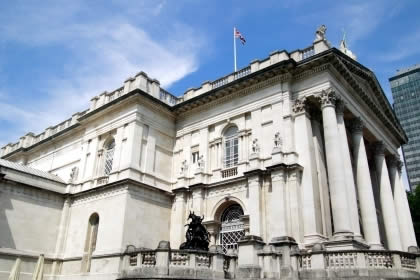March is here, which means students and educators everywhere are anxiously eying the calendar, counting down the days until a much deserved week break.
By this time, most people have booked their spring break travel plans, either close to home or in a far, far off land with sun and sea. No matter what you do over break, here are some tips for not “breaking the bank” and having to take on a part-time job to pay down your credit card bill from one week of revelry. With a little vigilance, you can have a great time while not spending excessively.
1) Cook some meals at your rental to save money. If you’re staying somewhere that has a full or partial kitchen, it’s fun and easy to make at least some of your meals there. This will save quite a bit of money over eating out, since food and alcohol costs will be lower and you won’t have to tip servers. If you’re renting a place with several other people, an easy way to do this is to assign each person (or you can work in pairs) to a night when they do the grocery shopping and cook. Making coffee and eating a simple breakfast “at home” in the morning will save you quite a bit of dough as well.
2) Make wise choices when dining out. If you eat in a restaurant several times, consider spitting appetizers, entrées or desserts to save money. Keep in mind that it is typically less expensive to split a bottle of wine than to order individual glasses. Also, do a bit of research on various restaurants/bars in the area before deciding where to eat/drink. Nothing’s worse than throwing away your hard-earned cash on bad or even mediocre food and drink.

Following some basic guidelines will help you avoid spending excessive amounts of money during your spring break vacation.
3) Take public transportation as frequently as possible. Before you leave, do a bit of research on public transportation options in the city you’ll be visiting. Knowing what the options are will help you avoid giving in to spending a lot of money on cab fare. If you do need to take a cab, make sure you share it with at least one other person (preferably someone you know), so that you can split the fare.
4) Work your student (or faculty) discount. That’s right, you should bring your student (or faculty) ID with you on vacation. Many international museums, transportation companies and restaurants offer discounts on entrance fees for students and teachers (especially over spring break). Some people I know carry an international student ID, which can easily be acquired at http://www.istc.org/.
5) Take a moment to think before making a purchase. I can’t tell you how many times I’ve purchased something (or several things) on vacation simply because I was on vacation. I lived to regret these purchases because a) they were overpriced and b) I never used them again after my vacation was over. Avoid buying souvenirs, clothes, jewelry, etc. “in the heat of the moment,” and definitely exercise caution when shopping under the influence! Before making a purchase, now I always ask myself 3 questions “Would I buy this if I weren’t on vacation?” “Is the price reasonable?” “Is this really something special that I will use and enjoy in the future?” If the answer to any of these is no, I keep on walking. Note on VAT: If you are traveling in Europe and purchase something expensive (over 100 euros), it’s worth it to have the VAT (value-added tax) refunded. European VAT rates hover around 20% and foreigners do not have to pay it. It’s not worth getting reimbursed for small purchases, but getting the VAT back on “big ticket” items definitely pays off. Ask the vendor for an itemized receipt and a VAT form (they’ll know what you’re talking about). VAT can be recuperated at the airport or via mail after you return (though it’s easier to do it at the airport before you leave).
6) Enjoy the people you’re traveling with and the experiences you are having. If I’m truly having a good time with the people I’m traveling with and experiencing wonderful things, I end up spending less money. Why? Because I’m living fully in the moment and enjoying the experience instead of searching for ways to enhance it through purchases.
